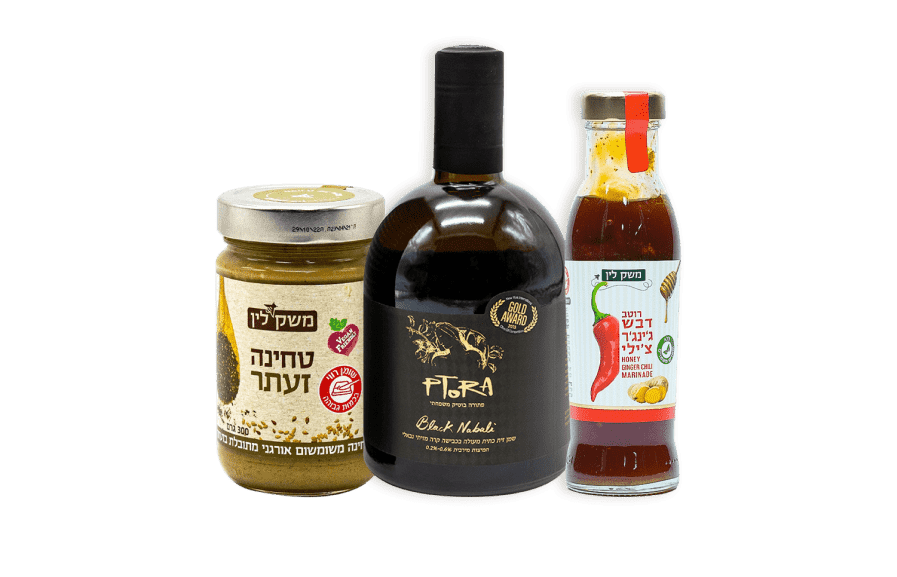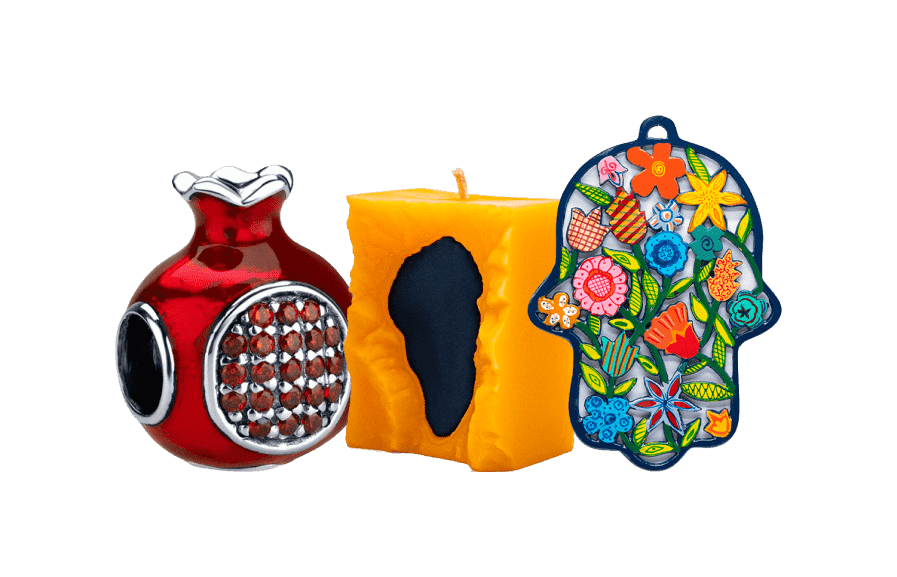7 tangible ways the City of Gold reaches across oceans — into your heart and home
You don’t have to walk the ancient streets of Jerusalem to feel her embrace.
Sometimes, it’s a scent carried on the wind. The cool weight of stone in your palm. A quiet object, placed gently on your table — not grand, not famous, yet vibrant with love and memory.
Jerusalem is more than history. She is a living story — one that unfolds, day by day, in every artisan’s hand and every family’s hope.
Her true treasures aren’t locked away behind museum glass. They’re shaped by people you’ve never met — ordinary Israelis carrying on ancient traditions with quiet pride and resilience.
Through them, the heart of Jerusalem can reach you — wherever you are.
7 Treasures of Jerusalem You Can Feel, Hold, and Cherish
(No passport or travel required)
🪨 1. Jerusalem Stone: Where Memory Becomes Touch

Imagine tracing your fingers over a stone that has quietly watched the world pass by for more than three thousand years.
Jerusalem stone — that creamy limestone glowing gold in the sun — forms the heart of the city. It builds her walls, lines her courtyards, and enfolds her sacred places.
To hold a piece of this stone is to feel the touch of eternity.
Artisans still carve these stones today into mezuzahs, candlesticks, and simple keepsakes that quietly carry the peace of Jerusalem.
🌿 2. Jerusalem’s Scent: Spices That Sing of Memory and Home

Jerusalems's heartbeat is found in lively Mahane Yehuda Market scents. Close your eyes and you can almost smell the air: wafting with za’atar (a green, uplifting blend of wild oregano, thyme, and sesame seeds), spikes of cinnamon, warm cardamom, sun-dried roses and lemony sumac.
These are not just ingredients. They are the flavors of family tables, the aromas rising from Sabbath bread, the scents clinging to clothing after a long, joyful meal. In the market, merchants still blend their spices by hand, using wooden scoops passed down for generations.
Their voices mix with laughter and greetings — each spice packet a tiny gift of heritage and hospitality.
Bringing Jerusalem’s spices into your kitchen is a way of joining in Israel’s story.
Sprinkle za’atar over warm bread, add a dash of cinnamon to tea — and suddenly, you’re sharing the oldest of blessings: food, comfort, and togetherness.
🏺 3. Ceramics from the Hills: Clay Shaped with Faith

Tucked among the hills just outside the city, the village of Ein Kerem feels like a world caught between old and new.
Here, Jerusalem’s potters still work as their ancestors did: kneading clay pulled from the earth, spinning it gently on wheels, forming simple bowls, cups, and plates with patient hands.
Many glaze their ceramics deep blue, echoing the ancient tiles once used in the temple. Others paint them with vines of pomegranate (an ancient symbol of abundance), olive branches, or gentle doves — timeless symbols found in both scripture and tradition.
Each item is unique, shaped slowly in a sunlit studio, often in a room shared by generations of family. To drink tea from a Jerusalem-made cup is to pause, to feel beauty in the ordinary, and to remember that faith is found not only in great monuments, but also in the humble things of daily life.
These pieces are not mass produced.
They’re born of conversation, laughter, and the quiet determination of those keeping Jerusalem’s arts alive — not for fame, but for love.
✨ 4. Woven Blessings: Threads of Generational Storytelling

Hidden within the neighborhoods of Jerusalem, you’ll find small, welcoming weaving studios where tradition and creativity meet. Many of these workshops are operated by talented artisans—often women whose families have called Jerusalem home for generations.
Using professional looms and high-quality threads, these artisans carefully design and weave beautiful challah covers(cloths for Sabbath bread), table runners, and linens for special occasions. Designs often include Hebrew words—like “Shalom” (peace), “Todah” (thanks), or artful representations of classic symbols such as pomegranates, olive branches, or even intricate geometric patterns.
What makes these pieces truly special isn’t an ancient secret technique, but the genuine care, patience, and pride woven into every piece. Hours of skilled handwork turn simple cotton or linen into something extraordinary—a work of art meant to grace your table, carry family memories, and reflect cherished values handed down over time.
To use one of these Jerusalem-made textiles is to set your table with a piece of living heritage—made not for decoration alone, but as a daily reminder of gratitude, family, and shared tradition.
Using professional looms and high-quality threads, these artisans carefully design and weave beautiful challah covers(cloths for Sabbath bread), table runners, and linens for special occasions. Designs often include Hebrew words—like “Shalom” (peace), “Todah” (thanks), or artful representations of classic symbols such as pomegranates, olive branches, or even intricate geometric patterns.
What makes these pieces truly special isn’t an ancient secret technique, but the genuine care, patience, and pride woven into every piece. Hours of skilled handwork turn simple cotton or linen into something extraordinary—a work of art meant to grace your table, carry family memories, and reflect cherished values handed down over time.
To use one of these Jerusalem-made textiles is to set your table with a piece of living heritage—made not for decoration alone, but as a daily reminder of gratitude, family, and shared tradition.
🕯️ 5. Beeswax Candles: Light That Welcomes Peace

On Friday evenings in Jerusalem, as dusk tints the sky, a quiet stillness settles.
In homes all across the city, families gather — and as the sun sets, Shabbat candles are lit. The gentle flame flickers, casting a soft glow and wafting a subtle scent of honey across the room.
Many of these candles are still made by hand, rolled from pure beeswax by small, family hives. Each is a testament to patient work, and to the belief that light brings comfort, hope, and peace no matter what the outside world brings.
Lighting these candles in your own home, even far from Jerusalem, is an invitation to pause — to end a week with gratitude, to begin a new one with hope, and to become part of a rhythm that unites millions across generations.
When you light a Jerusalem-made candle, you kindle not only wax, but belonging.
🫒 6. Olive Oil Soaps: Purity from Ancient Roots

Under the bright Jerusalem sun, close to the city’s old walls, a handful of soapmakers keep a tradition alive.
They boil olive oil — often pressed from trees in Judea, some centuries old and lovingly tended — with natural spring water, wild herbs, and sometimes touches of lavender, sage, or myrrh.
Their small bars are never harsh.
Instead, they’re gentle, fragrant, rich with the memory of earth and sun. Each batch is carefully hand-poured and cured, often taking weeks before it leaves a workshop.
To wash your hands, or your face, with Jerusalem soap is to feel the land.
The olive branches have weathered storms; the oil carries wisdom and resilience. Through these simple rituals, you become part of a promise: small, daily acts can bring health, renewal, and connection across oceans.
🎁 7. The Gift: Real Hands, Real Love

Perhaps the rarest treasure of all: something made, wrapped, and sent not by a factory, but by a living, loving person. These are not perfect corporate packages.
They are gifts — sometimes gathered by teams like Lev Haolam, whose whole purpose is to connect you directly to Israel’s heart, as if a caring friend sent a monthly package just for you. Unwrapping such a parcel is more than receiving things. It’s opening a bond, tasting hope, and feeling a piece of Jerusalem’s rhythm echo in your own home.
💛 When You Hold a Piece of Jerusalem…
Even if you never stand at the Western Wall, or stroll the olive groves of Ein Kerem, you can know her. You can hold her.
When you sprinkle za’atar over warm bread, light a Jerusalem candle at sundown, or lay a handwoven cloth over your table, you are holding the hope, the toil, and the courage of Jerusalem’s people.
You are holding a city that has seen sorrow and celebration for thousands of years.
You are carrying on the quiet work of peace — not just in memory, but in small, daily acts, woven with faith and kindness.
And now, thanks to Lev Haolam, these treasures come not as trinkets, but as stories, living bridges between your home and hers.
One subscriber shared:









